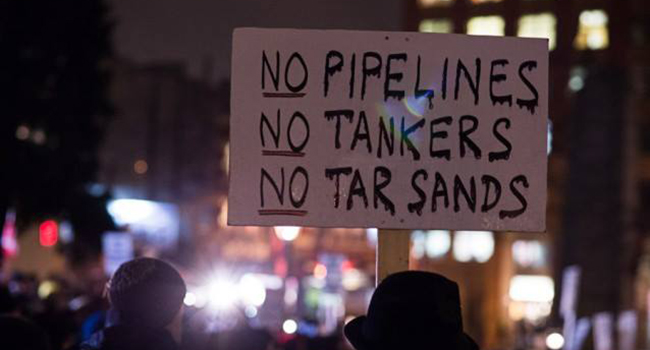By Gregory John
and Mark Milke
Canadian Energy Centre
A common tactic of anti-oil-and-gas activists and some international organizations over the past decade is to group all Indigenous people under the false narrative of broad opposition to energy development.

Gregory John
Those with anti-development agendas ostensibly enlist Indigenous allies as the easiest way to delay or stop resource projects from being built.
One example came in January, when the United Nations Committee on the Elimination of Racial Discrimination (CERD) called for the immediate cancellation of the Trans Mountain pipeline, Site C dam and Coastal GasLink projects. The committee claimed that Indigenous communities have not given their “free, prior, and informed consent to these projects.”
But the claim that First Nations are overwhelmingly opposed to oil and gas development is false.
Such anti-energy claims are actively contested by Indigenous leaders like Haisla Nation Chief Councillor Crystal Smith, whose nation has both Coastal GasLink pipeline and the LNG Canada export terminal in their territory.
CERD’s response to such facts was telling: Officials admitted they weren’t aware there was support across 20 First Nations for Coastal GasLink. Still, the UN organization justified its statement by saying the role of the committee did “not involve investigative work.”

Mark Milke
That lack of investigative work by the committee and others is why we decided to survey 250 First Nations across British Columbia and Alberta on their positions on recent and current oil and gas development projects.
And the results?
Contrary to the activist/UN narrative, we discovered that most British Columbia and Alberta First Nations with a public position on oil and natural gas development favour it.
Before detailing the results of our investigation, it helps to know how in-depth the consultations already are with First Nations.
Consultations represent a five-to-10-year (or longer) process. First Nations discuss real and potential impacts brought by development with project proponents, and federal and provincial governments. This robust process includes thinking through community concerns on issues related to the environment, geological issues, socioeconomic factors, along with the pure economic benefits for Indigenous people.
In the case of the Haisla, Smith notes how one development permit took nearly 100 meetings between the nation and the company involved.
The exhaustive process is not perfect for all First Nations, Canadians more broadly or companies involved, and some legitimately say the process is too long. But it’s nevertheless an attempt to honour Indigenous people’s connections to the land and wildlife.
Such consultations and the results upon which we base our measurements of support or opposition have been far more extensive than anything performed by here-today, gone-tomorrow anti-oil-and-gas activists.
Of 202 first Nations in British Columbia, at least 29 were found to favour oil and pipeline development with just three opposed – an almost 10-to-one ratio. Sixty-four First Nations don’t oppose oil development (or were unclear), while the remaining weren’t available or not affected by a development.
Those counted as not opposed require some explanation. Many First Nations haven’t publicly disclosed if they have an impact benefit agreement and thus may well be in favour but we can’t count them in that column.
Forty B.C. First Nations were found in favour of natural gas development, with none opposed (and one position unclear). One hundred and sixty-one First Nations either had no public position or were not affected by natural gas projects.
In Alberta, where First Nations have a 60-plus-year history of working with the oil and gas industry, of 48 First Nations, 46 were supportive of both oil and gas extraction and development, including pipeline construction. None were opposed, and two First Nations either had no stated position, or it wasn’t available or unclear.
Anti-oil-and-gas groups have a long history of co-opting Indigenous voices to advance their agendas. They have often stifled remote Indigenous economic development opportunities and deepened divisions within First Nations communities, with no concern about the lasting effects of their actions.
But it’s clear that the majority of First Nations with public positions in B.C. and Alberta support oil and gas development.
Gregory John is the Indigenous content researcher and Mark Milke is the research director of the Canadian Energy Centre, an Alberta government corporation funded in part by taxes paid by industry on carbon emissions. They are authors of Pro or Con? Measuring First Nations’ support or opposition to oil and gas in B.C. and Alberta.
Gregory and Mark are Troy Media Thought Leaders. Why aren’t you?
The views, opinions and positions expressed by columnists and contributors are the author’s alone. They do not inherently or expressly reflect the views, opinions and/or positions of our publication.

